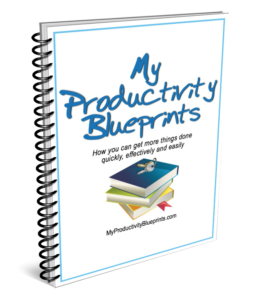Bad habits are frustrating and difficult to break, but why are some so hard to shake? Let’s explore three common reasons why bad habits are so stubborn and what you can do to overcome them.
1. Your Life Is Out of Alignment
Bad habits often arise when something in your life or work is out of balance. Maybe you’re feeling stressed or overwhelmed, or perhaps you’re not getting enough sleep or exercise. Whatever the case, when something in your life or work is off kilter, it can be hard to break a bad habit.
What is out of alignment? Here are some common examples and what to do to fix it:
• Sleep/energy levels – Make sure you get enough sleep, exercise regularly, and eat a balanced diet.
• Stress/anxiety – Engage in stress-relieving activities such as yoga, meditation, walking or deep breathing exercises.
• Time management – Create a daily routine and schedule specific tasks to maximise your productivity.
• Finances – Develop a budget and stick with it.
• Relationships – Spend quality time with your family and friends.
• Work/life balance – Set boundaries between work and leisure activities so that you can rest and relax during off-hours and work effectively during work hours.

It’s important to identify what might be out of alignment and put in the effort to fix it.
To determine what is out of alignment in your life you may need to practice reflective thinking or mindfulness or keep a journal to help you figure out what’s not right for you.
For example, if you have low energy, is it due to your diet, sedentary lifestyle, stress, or anxiety, or is your time management needing some work?
This requires brutal honesty about what you may be doing to cause this misalignment.
2. You Don’t Understand Why You Are Doing It
Sometimes, people engage in bad habits without really understanding why. Maybe you’re doing it out of boredom, to cope with negative emotions, or simply because it’s a habit you’ve always had.
It is difficult to address the issue without understanding the root cause of your bad habits so that you can make lasting changes.
Thankfully, it only takes a few steps that will allow you to get to the root cause of a bad habit:
1. Identify the habit
2. Track your behaviour
3. Ask yourself hard questions
4. Take action
Take the time to observe the bad habit so you can determine what exactly the bad habit is.
Take notes when the habit occurs. Ask yourself why. Write down the situation or emotions you experience that triggers the habit.
Ask yourself these hard questions to identify and understand any underlying causes, especially the payoff you get from performing the bad habit.
3. You Focus Only On the Endpoint, Which Overwhelms You
Breaking a bad habit is sometimes overwhelming.
This is especially true if you’re only focusing on the endpoint rather than the steps it takes to get there. So instead of trying to quit a habit cold turkey, it is often more effective to focus on small, achievable steps.
For example, if you’re trying to stop procrastinating, try setting yourself a goal to work on that task for just 15 minutes each day, after which you can reward yourself by working on a more pleasant task.
You’ll be more prone to sticking to your new habit and making lasting changes by taking small steps that accumulate over time.
Bad habits can be hard to break. However, by understanding the root cause of your habit, focusing on small, achievable steps, identifying what might be out of alignment in your life, and working to correct the issues, you are sure to overcome your bad habits and create lasting change.

 1. Goal-oriented
1. Goal-oriented
 Planning and prioritisation are crucial for increasing your productivity. Proper planning helps you focus on the most important tasks and will bring you closer to achieving your goals. In addition, when you plan and prioritise your work, it ensures that you are using your time efficiently, helping you avoid wasting time.
Planning and prioritisation are crucial for increasing your productivity. Proper planning helps you focus on the most important tasks and will bring you closer to achieving your goals. In addition, when you plan and prioritise your work, it ensures that you are using your time efficiently, helping you avoid wasting time.
 How to Use Habit Stacking Effectively to Transform Your Life
How to Use Habit Stacking Effectively to Transform Your Life
 Success leaves clues. If you looked at some of the most successful people on the planet, you’d realise that most of them have a few common traits. It doesn’t matter what field they’re in or where they started from… they still follow the 5 principles of success below.
Success leaves clues. If you looked at some of the most successful people on the planet, you’d realise that most of them have a few common traits. It doesn’t matter what field they’re in or where they started from… they still follow the 5 principles of success below.



 You’ve likely heard the saying that “change is hard.” You may also have heard the saying that “change is inevitable.”
You’ve likely heard the saying that “change is hard.” You may also have heard the saying that “change is inevitable.” 
 There is a strong connection between setting goals and maintaining the motivation required to successfully attain them.
There is a strong connection between setting goals and maintaining the motivation required to successfully attain them.





